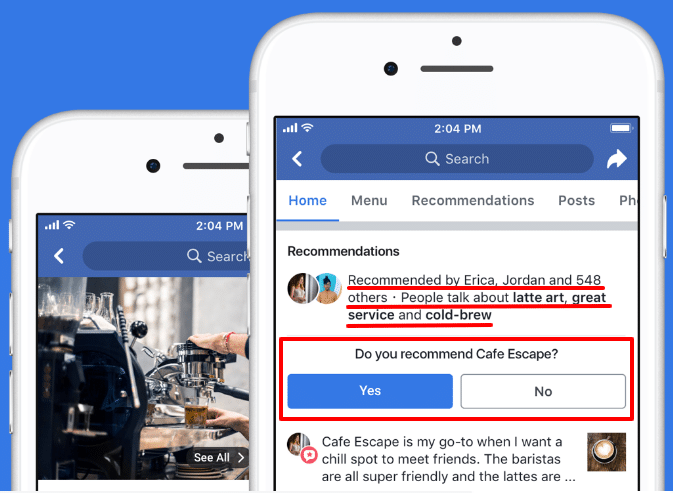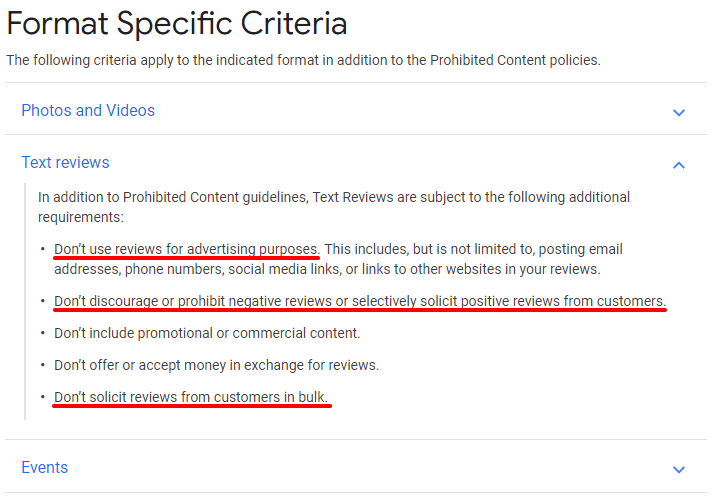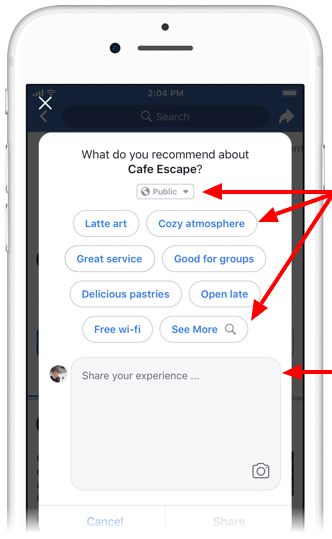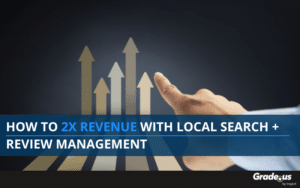Imagine that you know.
You know something most of your other competitors don't. Something that, if acted upon, will help you to pull ahead of your competitors - maybe permanently.
Do you act on this precious intel? Of course you do! These details are helpful tools you can use to pull ahead in your market.
Most organizations aren't prepared for these changes
It's business as usual.
Many of these organizations have a static view of review management. Customers look for reviews, you provide them. There's no need to complicate things any further.
Sounds about right.
In reality, it's anything but. The review management landscape is changing. Some of the changes are subtle and unexpected. Others are easy to ignore.
But, change is coming.
Your customers, reviewers, competitors, and platforms are all evolving. What does this mean specifically?
Prediction #1: Review management is getting harder
Platform providers have changed their minds. No longer do they provide brands and reviewers the same freedom and latitude they have in the past.
Their guidelines are more strict.
Facebook has decided to scrap their five point review scale system. At one time, they were testing a new 10 point scale, but they've decided to scrap this in favor of something else.
Something worse.
Facebook is now rolling out a Yes/No recommendation system to local businesses, and it's expected to completely replace their current five star rating system.

This creates a challenge.
Here's why.
If you're running a review management campaign, things just become a bit more difficult. Instead of degrees of agreement/disagreement (e.g. five stars, smileys, 1 - 10 scale), users are bifurcated.
Yes or No.
This change means the unprepared are far more likely to attract detractors and promoters who are passionately for or against your interests.
Lukewarm responses may decrease.
Customers who aren't particularly motivated one way or another may simply opt out of the whole "recommendation" process altogether. If someone doesn't really have a problem with a business but also doesn't really feel motivated to recommend the business, why respond? This circumstance creates a challenge; reviews (e.g. recommendations) are more difficult to come by.
And then, there's Google.
In late 2017, early 2018, Google decided to update their review guidelines to something they felt was more appropriate for users.
What does this mean for brands and reviewers? You're not allowed to solicit reviews from customers in bulk. You're not allowed to discourage or prohibit negative reviews.

If you or your customers use Google for email (e.g. Gmail, Inbox, Apps) they'll follow your links. If you accumulate reviews too quickly (200 emails sent, 20 reviews received) you'll probably lose those reviews.
Expect more restrictions.
Expect major platforms (e.g. Google, Yelp and Facebook) to ramp up their restrictions and requirements. Facebook recently began rating users on their trustworthiness so, expect the impact to be felt on both ends (reviewers and brands) in the coming year.
How to adapt:
Create a balanced review portfolio. A balanced portfolio is more important than ever. Mainstream review platforms use a variety of data points to accumulate data on your business.
They know you.
The amount of online/offline traffic you receive. How to identify natural vs. coached vs. synthetic reviews. Now's the time to strengthen your review portfolio with second and third tier review platforms. This is key for a variety of reasons:
- You’re free from the tyranny of mainstream platforms
- Protected against unexpected penalties and removals
- You’re able to build an audience outside of mainstream venues
- You’ll be able to maintain a dominant position with search results
Variety is the key to survival in 2019. You'll need to build a balanced portfolio if you'd like to build and maintain your review profile.
Prediction #2: Prepare to be profiled, flagged and reported
Remember reviews like this?

That's a doozy, isn't it? This is an actual review and it's one that demonstrates an intentional disdain for customers. This customer made a legitimate complaint.
What a disaster.
These reviews will soon become a thing of the past. Why?
Facebook.
Facebook has added two distinct features to their Yes/No recommendations. Rich endorsements and reporting on individual recommendations.
Facebook describes Rich Endorsements as:
"People can easily indicate if they recommend your business to others by simply answering "Yes" or "No", and can explain why with tags, text and photos. By selecting a tag, they can help themes emerge in the feedback from Recommendations, making it easier for potential customers to see what your business is known for."
Which looks like this:

Are you seeing what's happening here? Facebook is crowdsourcing sentiment analysis. They're asking users to define your business. To give your organization an identity that will stay with your business indefinitely.
It's a two-edged sword.
If your reputation is amazing, it can quickly create a virtuous cycle. You under promise and over deliver, customer sentiment trends positive. What if you fail to perform? You create a vicious cycle as customers turn against you and sentiment becomes negative.
There's the need for significant caution here.
If someone in your organization makes a social media faux pas, you could have an angry internet mob on your hands. If you're not prepared to deal with the backlash from a group of angry customers, customer sentiment on your profile could quickly become negative.
Expect this trend to continue.
Facebook is under a significant amount of pressure to perform. For the last two years they've been hammered by bad press. It makes sense then, that their stance has grown more aggressive over time. Google has a mountain of data about your business.
It's staggering.
They know the queries associated with your business, your contacts, sent/received emails and the content of your email conversations, demographic and psychographic data and so much more. Google uses some of this data to enforce their stringent review guidelines.
Which makes sense.
As Facebook and Google clamp down on their review guidelines the risks to brands and reviewers grow. Is there any way to deal with this?
How to adapt:
There are two ways to approach this problem.
1. Institute social listening protocols, the kind where you're able to listen, approach and respond to reviewers, whether their statements are positive, negative or neutral.
2. Create a crisis management plan that protects you from overwhelming responses. Believe it or not, you'll need a crisis management plan that outlines your response to both positive and negative responses.
You can't control reviewer sentiment, but you can guide it.
Accept their responses. Work to validate and empathize with their negative and positive feedback. Show reviewers you're interested and engaged in the process.
Listen, then respond accordingly.
If you're prepared for these changes you're prepared to win
These changes are subtle.
They're details knowledgeable brands are using to evolve. Many organizations have a static view of review management. Customers look for reviews, you provide them. No need to complicate things any further.
As we've seen, this is wrong.
Your customers, reviewers, competitors, and platforms are looking for ways to evolve and grow. But most aren't prepared.
You can be.
You see it, the change that's coming. The review management landscape is changing. Some of the changes are subtle and unexpected, others are easy to ignore.
But, change is coming.
Review management is getting more challenging. Brands have two choices, adapt or lose. Most organizations are unprepared, they're completely in the dark about these changes.
You're ready.
Mainstream platforms are changing. Second and third tier platforms are growing. You see the opportunities for diversity, a chance to achieve independence from mainstream platforms. Your competitors aren't seeing this.
You don't have to imagine, you know. With the right effort you'll have what you need to pull ahead in 2019.
About the Author
Andrew McDermott
Andrew McDermott is the co-founder of HooktoWin. He shows entrepreneurs how to attract and win new customers.








